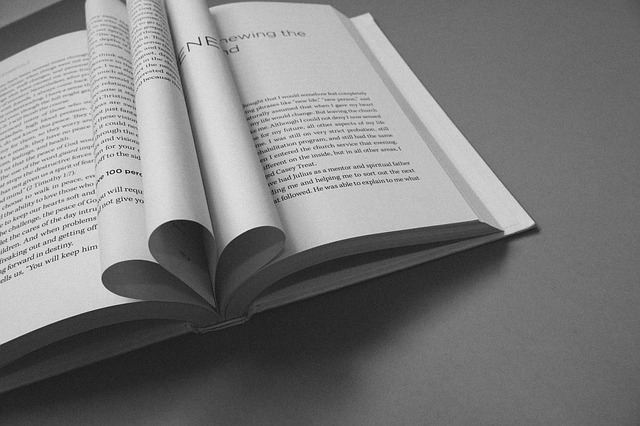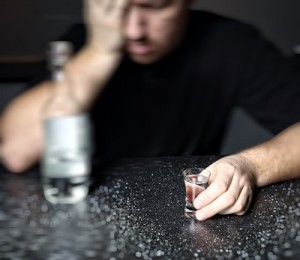- Calls to this hotline are currently being directed to Within Health, Fay or Eating Disorder Solutions
- Representatives are standing by 24/7 to help answer your questions
- All calls are confidential and HIPAA compliant
- There is no obligation or cost to call
- Eating Disorder Hope does not receive any commissions or fees dependent upon which provider you select
- Additional treatment providers are located on our directory or samhsa.gov
The Rise of Drunkorexia: When Disordered Eating Meets Binge Drinking

Contributor: Courtney Howard, B.A., Executive Assistant at Eating Disorder Hope and Addiction Hope
Individuals within the eating disorder community often struggle with a similarly disordered relationship with alcohol. Though it is clear that these behaviors are both coping mechanisms gone wrong, the connection between alcohol abuse and eating disorders needs to be further researched.
The term “drunkorexia” refers to disordered food behaviors directly related to binge drinking. This includes skipping meals, purging, and/or engaging in compulsive exercise in anticipation of calories to later be consumed through alcohol. These behaviors can also be performed after binge drinking episodes to compensate for these calories after the fact.
Prevalence of Drunkorexia on College Campuses
A recent survey [1] conducted by researchers at University of Houston looked at drunkorexic behaviors among college students in the United States. Participants were students, both male and female, who had engaged in at least one round of binge drinking within the past month. Of the nearly 1200 individuals surveyed, eight in 10 had practiced some form of drunkorexic behaviors.
Dr. Dipali V. Rinker, a research assistant professor at University of Houston, recently reported these findings at the Research Society on Alcoholism’s conference in late June 2016. This coincides with the release of another important study [2] on the prevalence of drunkorexia based out of Australia. Led by Alissa Knight of University of South Australia, this study found that approximately 57.7 percent of the 136 female college students surveyed reported engaging in drunkorexic behaviors at least 25 percent of the time.
Surprisingly, drunkorexia, which is not included in the Diagnostic and Statistical Manual of Mental Disorders (DSM-5), is often reported among individuals who do not fit the diagnostic criteria for an eating disorder. For example, the participants in the survey from Australia were all students who did not have any disordered food behaviors unrelated to alcohol.
Dr. Rinker’s study included both men and women to examine the prevalence of drunkorexia within both populations. According to Dr. Rinker, in some cases males were more likely than females to engage in drunkorexic behaviors. Further research must be conducted to determine this relationship, but these preliminary findings shoot down the stigma that eating disorders and related behaviors primarily affect women.
Why Drunkorexia?
 Drunkorexia is a dangerous pattern of behaviors that pose serious mental and physical health risks. So why do so many young adults engage in these behaviors? A large part of the problem is the intense social pressure (and desire) to drink alcohol combined with arguably equally intense unrealistic body ideals.
Drunkorexia is a dangerous pattern of behaviors that pose serious mental and physical health risks. So why do so many young adults engage in these behaviors? A large part of the problem is the intense social pressure (and desire) to drink alcohol combined with arguably equally intense unrealistic body ideals.
The National Institute on Alcohol Abuse and Alcoholism reports that approximately four out of five college students consume alcohol. Out of this 80 percent of students who drink, approximately half binge drink. The reality is that alcohol is not typically low-calorie so, when combined with the social pressures surrounding body image, it makes sense that many students would turn to compensatory behaviors to make up for binge drinking.
As an added “bonus,” not having any food in your system makes alcohol absorb more quickly into your bloodstream. This means you get intoxicated much faster than after having eaten a four-course meal. These effects are attractive to students because that means fewer calories need to be consumed through alcohol before getting drunk. Students who are strapped for cash also save money if they feel they get intoxicated off one or two drinks.
These factors, which are seen to the individual as benefits of their drunkorexic behaviors, can put them in grave danger. Binge drinking on an empty stomach not only has serious medical consequences, including a higher likelihood of alcohol poisoning, but it means lowered inhibitions and increased overall risk of harm to the individual.
Alcohol & Eating Disorders
 Though drunkorexia does not necessarily have to co-occur with a full-blown eating disorder, this is often the case. There are many other ways that alcohol abuse can cross over into the lives of those with eating disorders.
Though drunkorexia does not necessarily have to co-occur with a full-blown eating disorder, this is often the case. There are many other ways that alcohol abuse can cross over into the lives of those with eating disorders.
On a basic level, the eating disorder population typically struggles with depression, anxiety, and/or other co-occurring mental health concerns. Disordered food behaviors, though typically used to cope, only intensify these unwanted feelings over time. Alcohol is then often abused to numb the individual, provide temporary relief, and/or as an escape.
Many individuals with anorexia nervosa or related eating disorders do not give themselves permission to eat on a regular basis. In their minds, they need to earn the right to nourish their bodies, and they are unworthy. When they consume alcohol and their inhibitions are lowered, this might be the only time they “allow” themselves to eat a normal meal. However, this is often followed by compensatory behaviors.
Some individuals with severe eating disorders might even purposely binge drink to the point of alcohol poisoning as an indirect form of self-induced vomiting.
Find Help Today
Whether you are engaging in drunkorexic behaviors to supplement your eating disorder or your disordered food behaviors are isolated to binge drinking episodes, it is important that you seek help immediately.
Despite what you may think, it is not normal to engage in these behaviors, even if it feels like everyone around you is doing it. Your drunkorexia is not a fad and it will likely not go away without some professional help. Recognize that you deserve to live a life free from these obsessions and harmful behaviors.
Community Discussion – Share your thoughts here!
Why do you think drunkorexia is so prevalent on college campuses today?
 About the Author: Courtney Howard is the Executive Assistant for Eating Disorder Hope and Addiction Hope. She graduated summa cum laude with a B.A. from San Diego State University, holds a paralegal certificate in Family Law, and is a Certified Domestic Violence Advocate. After obtaining her certification as a life coach, Courtney launched Lionheart Eating Disorder Recovery Coaching in 2015 and continues to be a passionate advocate for awareness and recovery.
About the Author: Courtney Howard is the Executive Assistant for Eating Disorder Hope and Addiction Hope. She graduated summa cum laude with a B.A. from San Diego State University, holds a paralegal certificate in Family Law, and is a Certified Domestic Violence Advocate. After obtaining her certification as a life coach, Courtney launched Lionheart Eating Disorder Recovery Coaching in 2015 and continues to be a passionate advocate for awareness and recovery.
References:
[1]: Research Society on Alcoholism. “Drunkorexia 101: Increasing Alcohol’s Effects Through Diet and Exercise Behaviors.” ScienceDaily. ScienceDaily, 27 June 2016.[2]: Knight, A., Castelnuovo, G., Pietrabissa, G., Manzoni, G. M. and Simpson, S. (2016). Drunkorexia: An Empirical Investigation among Australian Female University Students. Australian Psychologist. doi: 10.1111/ap.12212
The opinions and views of our guest contributors are shared to provide a broad perspective of eating disorders. These are not necessarily the views of Eating Disorder Hope, but an effort to offer discussion of various issues by different concerned individuals.
We at Eating Disorder Hope understand that eating disorders result from a combination of environmental and genetic factors. If you or a loved one are suffering from an eating disorder, please know that there is hope for you, and seek immediate professional help.
Last Updated & Reviewed By: Jacquelyn Ekern, MS, LPC on July 7, 2016
Published on EatingDisorderHope.com

The EatingDisorderHope.com editorial team comprises experienced writers, editors, and medical reviewers specializing in eating disorders, treatment, and mental and behavioral health.

